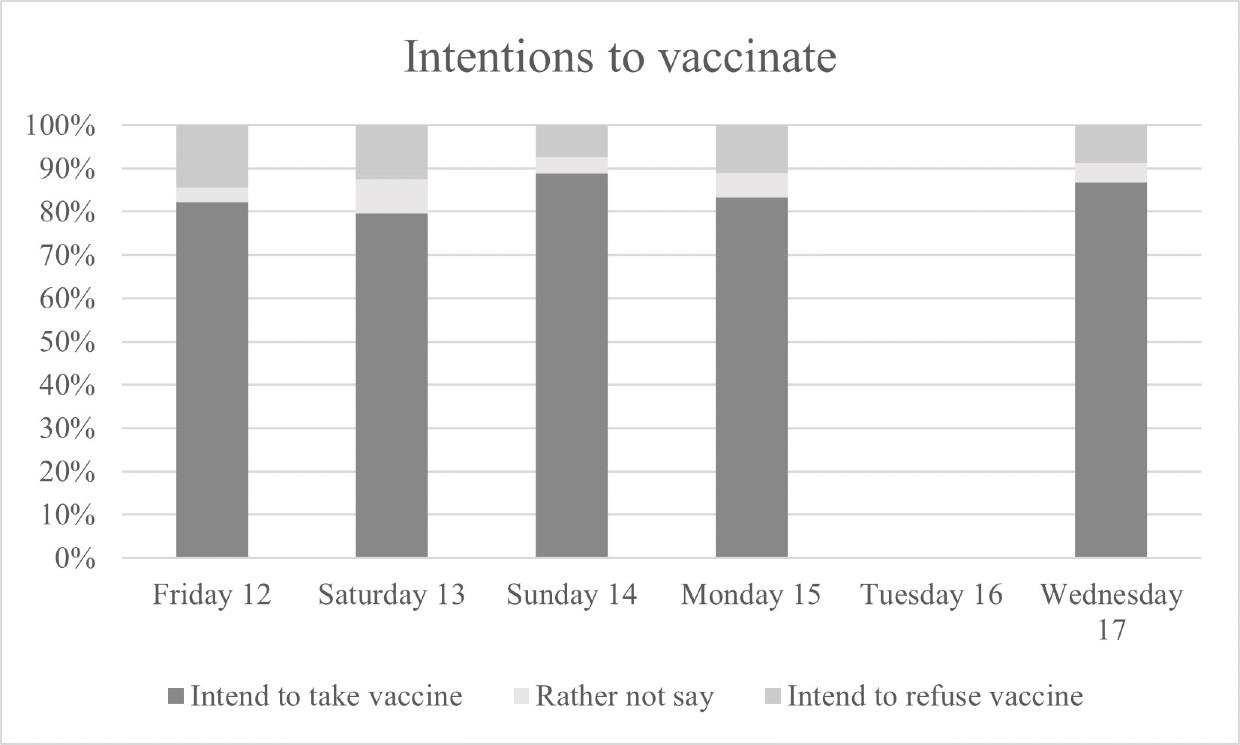AstraZeneca suspension did not impact vaccine intentions
New research from the University of Stirling has shown that the suspension of the AstraZeneca vaccination had no effect on the UK general public’s intention of getting the vaccination.
/filters:format(webp)/filters:no_upscale()/prod01/cdn/media/stirling/news/news-centre/2021/march/COVID-19-vaccine-bottles-BANNER-1920X689.jpg)
New research from the University of Stirling has shown that the suspension of the AstraZeneca COVID-19 vaccination had no effect on the UK general public’s intention of getting the vaccination.
Last week, various European countries including France, Germany and Italy, suspended use of the vaccine because of reported links to blood clots and deaths. On Tuesday 16 March, the story was front-page news across the UK.
In the period immediately surrounding these events, a multi-disciplinary team of researchers, including Dr David Comerford of Stirling’s Behavioural Science Centre, was collecting data for a wider project on fear and concerns relating to COVID-19.
/filters:format(webp)/filters:no_upscale()/prod01/cdn/media/stirling/news/news-centre/2021/march/David-Comerford__700X600.jpg)
Behavioural Science Centre, University of Stirling
This is not to say that the UK public were not concerned by the news. Google Trends data shows increasing search activity for the terms ‘vaccine’ and ‘safe’ as the AstraZeneca suspension story was unfolding, but that concern did not translate in to mistrust of the vaccination programme in the UK.
Dr Comerford said: “Our data provided time-lapse footage of the public’s response to the story. We found no effect of the press stories on intentions to take the vaccine or on intentions to refuse it. Furthermore, there was no change to the perceived costs and benefits of being vaccinated.
“This is not to say that the UK public were not concerned by the news. Google Trends data shows increasing search activity for the terms ‘vaccine’ and ‘safe’ as the AstraZeneca suspension story was unfolding, but that concern did not translate in to mistrust of the vaccination programme in the UK.
“In fact, a record number of people took the vaccine on the following Saturday, 20 March.”

Responses to the question “Do you intend to get the Covid vaccine?” (yes, no, rather not say). Data was not collected on Tuesday.
The results suggest that public confidence in the vaccination programme remains strong within the UK, but there is emerging evidence that confidence of the vaccination programme among European residents was damaged by these events.
Dr Comerford says the research has opened up further questions, he added: “An important question for future research is why the UK and European public responded differently and whether there are any lessons that can learned to manage future scare stories.”
The research is part of a wider project funded by the Economic and Social Research Council (ESRC), as part of UK Research and Innovation’s rapid response to COVID-19.
The research paper ‘Did Negative News Regarding the Oxford AstraZeneca Vaccine end in Vaccine Hesitancy? A Repeated Cross-Section Event Study from the UK’ is available to read in full here.
Read a blog, authored by Dr Comerford, on the findings on the University's Public Policy Blog.
